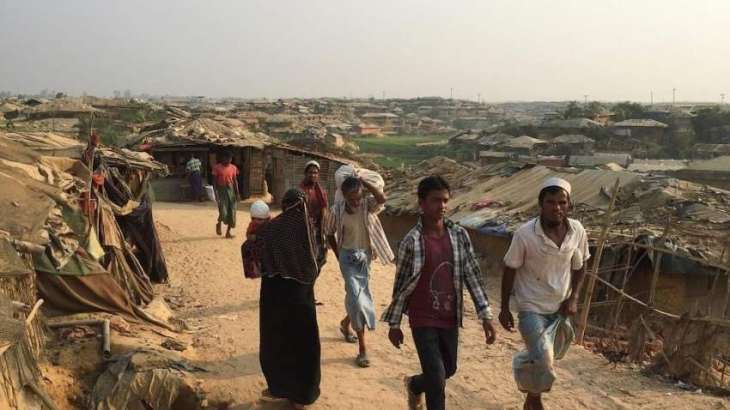Rohingya children living in refugee camps in the city of Cox's Bazar in southeastern Bangladesh, are facing a higher risk of various forms of violence as the coronavirus pandemic deteriorates socioeconomic conditions in the city, children rights NGO Educo said in a press release on Monday
MOSCOW (Pakistan Point News / Sputnik - 22nd June, 2020) Rohingya children living in refugee camps in the city of Cox's Bazar in southeastern Bangladesh, are facing a higher risk of various forms of violence as the coronavirus pandemic deteriorates socioeconomic conditions in the city, children rights NGO Educo said in a press release on Monday.
"Child rights NGO Educo says [Rohingya] children living in the world's largest refugee camp [in Cox's Bazar] now face heightened risk of various forms of violence including child trafficking, child labor and child marriage amid worsening socioeconomic conditions brought about by the pandemic," the press release, published on humanitarian information portal ReliefWeb, said.
According to the press release, citing Matiur Rahaman, Educo's emergency response head of mission in the city, the pandemic has created an even bigger crisis within an already acute situation for Rohingya children, who are now isolated from the outside world, as schools are still closed, and many of them do not have access to learning alternatives.
Educo also said that over 1,500 COVID-19 cases were recorded among host population in Cox's Bazar � one of the poorest areas in Bangladesh � with at least 38 of them being registered in refugee camps. The NGO added that the real numbers could be much higher.
According to the press release, Educo and Childfund Korea have launched a campaign to help children living in the city's refugee camps and host communities hard hit by lockdowns and school closures amid the pandemic. Under the COVID-19 emergency response program, the NGO will distribute hygiene kits to 2,000 households in the refugee camps and supply personal protective equipment to health facilities, among other activities.




